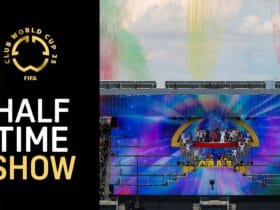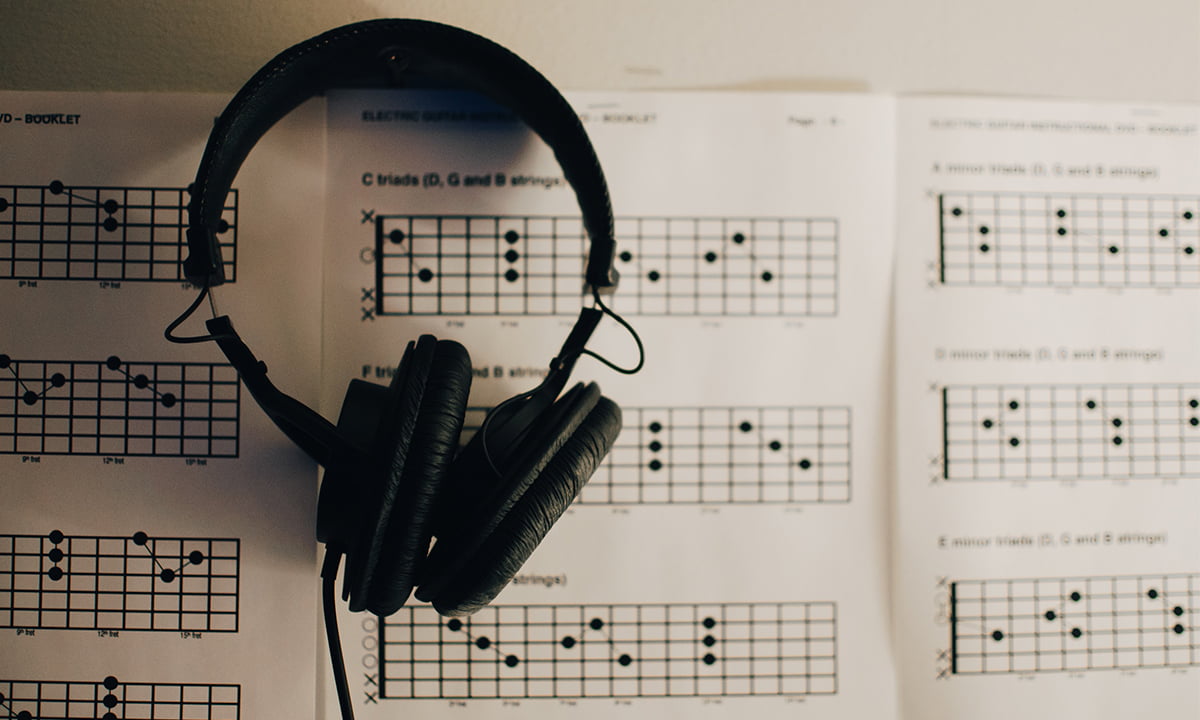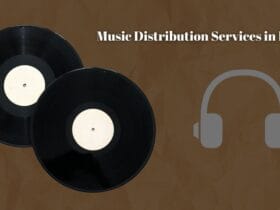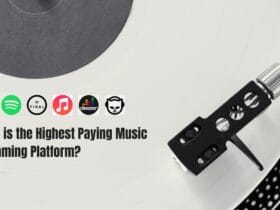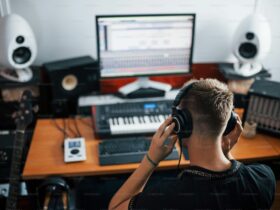Do you like to play music in the “background” while you work? You’re not the only one. Surveys show that about 85% of people whose employment allows them to listen to music while performing professional duties enjoy doing the same. And for 42% of respondents, background music is played from morning to night. Not surprisingly, scientists wonder how this affects productivity. Does music helps a student & you concentrate or boost energy – and if so, what are the best tunes to add to your work playlist?
How Can Music Help Us Stay Focused?
Despite all its amazing properties, our brain is not yet capable of the simplest thing: concentrating on a single task for a long time. In fact, we have two systems of attention at the same time. One is conscious, which allows us to focus specifically on what we want. The other is unconscious, which shifts our focus to whatever potentially important stimulus our senses register, regardless of our will. For example, even if you are focused on reading this article, the unconscious system will instantly respond to a pop-up notification.
READ MORE – How Does Music Affect The Brain
There are several problems with this. First, the unconscious system works automatically and faster than the conscious system. This means: when you hear a slight noise in the process, you are likely to be distracted by it before you even realize why you did it. Second, the longer you try to concentrate on a single task, especially if it’s not very pleasant or interesting, the less variety of stimuli your brain receives. Because of this, the unconscious attention system switches to a higher intensity mode. And weak stimuli are already enough to distract you. The person next to you sighs or sips coffee – and you lose your concentration. This is a big problem for many students, so many struggling with their studies think about who will write an essay for me by essay assistant to get a good grade.
Musical Background For Concentration
The best way to study the effects of music on concentration is through the example of people with attention deficit and hyperactivity disorder (ADHD). ADHD is usually diagnosed in childhood, so studies are mostly conducted on children – it is believed that by adulthood, most people “outgrow” this syndrome. Recently, however, the diagnosis of ADHD has become more accurate, and it turns out that almost 5% of adults face the problem of attention deficit. So, here are the two leaders in the ranking of music for concentration. This is the best point that music helps a student concentrate.
Music For Motivation
From the 1950s to the 1990s, the theory of “musical effect” was popular in the research community. It was put forward in 1956 by composer and philosopher Leonard Meyer. He believed that music carries a certain “affective charge” – and, accordingly, can cause everyone the same, programmed in it emotions: either joy and excitement or frustration and sadness.
However, this theory was subsequently disproved. Researchers have noticed that the composition of the melody itself is only a small part of what influences the perception of music and the emotions it evokes. No less important is the circumstances in which people listen to the melody, what memories it awakens, and so on. In addition, it turns out that music can work on the principle of neurofeedback. If you regularly listen to a certain playlist in moments of excitement and concentration, then after a while these tunes will become an emotional trigger for you, that is, will move you into a more productive state.
READ MORE – How Does Music Heals Our Lives || Healing Music
The Most Productive Style
In 1993, researchers discovered the so-called “Mozart effect”: it turned out that when listening to classical melodies of the composer’s experiment participants performed better in tasks of spatial orientation – one of the standard tests for intelligence and attention. But in 2001, this theory was also disproved.
In experiments, researchers compared the results of the spatial test in those who listened to a major Mozart tune and those who listened to a minor component of another classic or just sat in silence. The group of Mozart listeners did have higher scores, but this was primarily due to the elevated mood and emotional excitement. The conclusion: if you want to concentrate, you don’t have to listen to classical music – just turn on music that makes you happy and excited.
And there are some general patterns. As the experiments of the English psychologist Maria Vitek showed, the brain, as a rule, enjoys music with a diverse, but not too complicated a rhythmic pattern. Simple and monotonous beats that resemble the beats of a metronome will not create a stimulating musical background. And chaotic and unpredictable music like free jazz, with a lot of spontaneous sounds, can distract you from your work more than a lively conversation with colleagues. This is the best point that music helps a student concentrate. Hence the four rules.
What Music Does NOT Make A Playlist For Productivity
- without a clear rhythm;
- very loud, with abrupt transitions;
- too fast;
- songs that you love or, conversely, can’t stand: the former will distract you from your work with pleasant emotions, the latter with unpleasant ones.
The Perfect Playlist For Work
There’s no such thing. It all depends on the task you want to do: raise your spirits, increase your energy, or concentrate as much as possible on a specific task. This is the best point that music helps a student concentrate.
Energy. If your goal is to boost your mood and energy before work, to get into the process as comfortable as possible, you can use the ISO principle. This emotion management technique used in music therapy since the late 1940s. The idea is that you gradually bring yourself to the right emotional state by arranging the playlist so that the first song fits your current state and the subsequent ones bring you closer to the desired mood. If you’re feeling depressed in the morning, start with something calming, and then move on to more motivating tracks. You can choose the music according to your taste.
Concentration. If your purpose is to concentrate as much as possible, the soundtracks to video games can suit you. Especially, They recorded to create an immersive environment with full immersion, drown out extraneous noises while not distracting from the main thing.
Concentration + Energy. Is it possible to combine emotionality and focus at work? Yes, if you use the method of the famous American writer Michael Lewis. In the podcast of productivity expert Tim Ferris, he described the principle by which he chooses a “soundtrack” – about 20 songs – to work on his book and how he listens to it. Three rules:
- Choose tracks that reflect the emotions you’d like to put into the project.
- Adjust the volume of the music so you don’t hear any extraneous sounds: phone calls, conversations, door banging, the noise outside the window. Or buy noise-canceling headphones.
- And most importantly: listen to the same set of songs – over and over again, until you stop noticing them, like the ticking of a clock or your own breathing. That will be the “flow state”.


